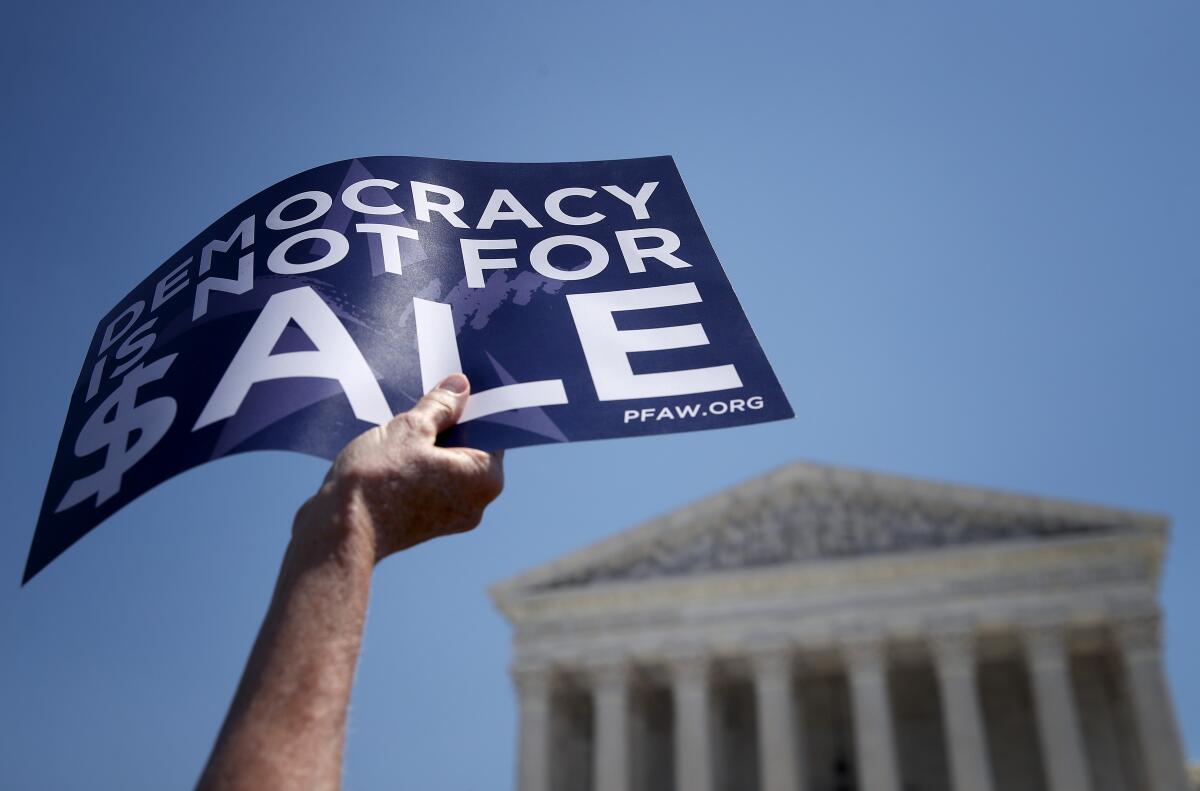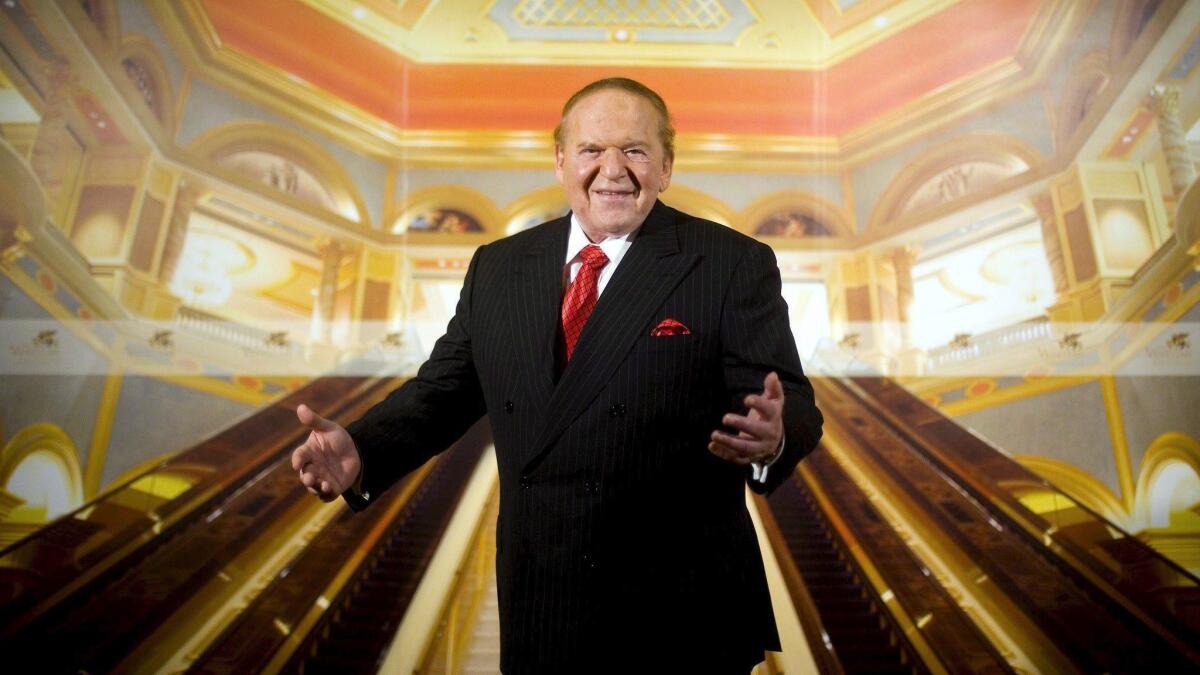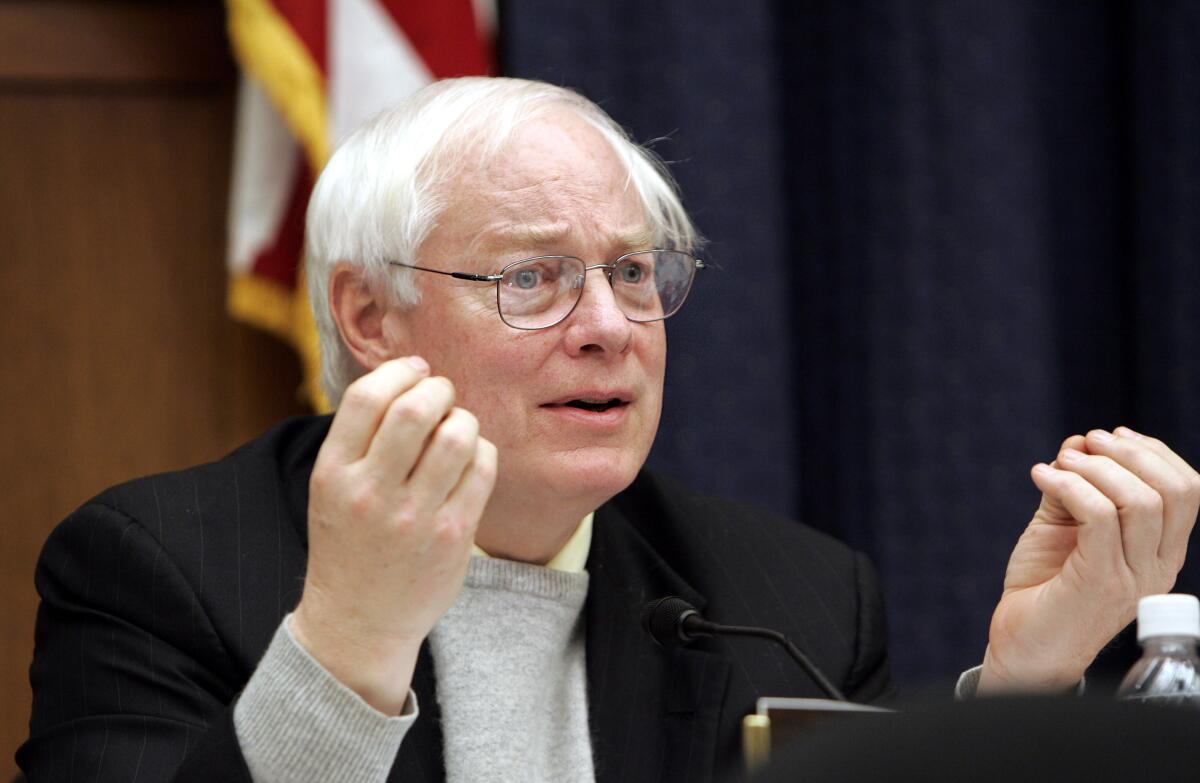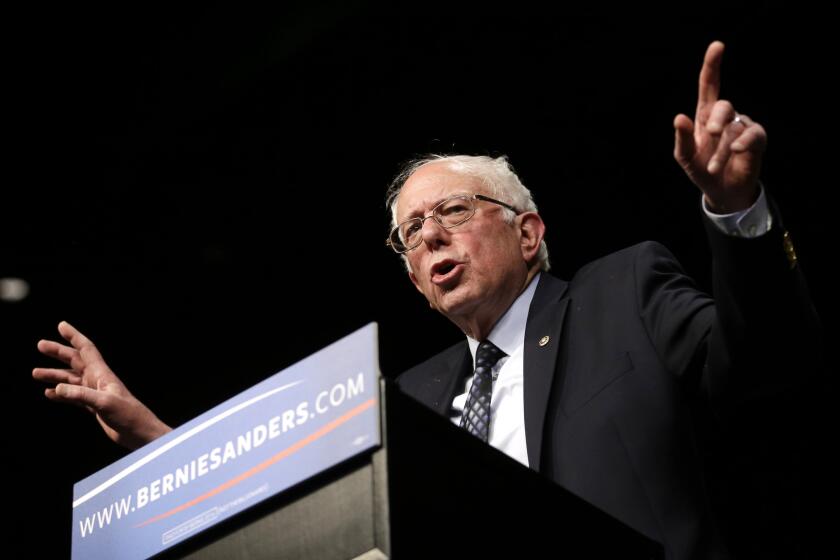Ten years on, Citizens United ruling has changed U.S. politics — but not in the way many feared

Ten years ago this month, the Supreme Court shocked the American political establishment with the declaration that corporations had the same rights as people in the eyes of the 1st Amendment, and therefore were exempt from restrictions on political spending.
Many conservatives said it would make the system fairer, broadening the open market of ideas and creating a new frontier of freedom of expression in politics. Liberals, for the most part, denounced it as a threat to democracy that would cement power in the hands of the few.
A decade later, the ruling in Citizens United vs. Federal Election Commission has certainly changed the way money influences American politics — but largely in ways that were unforeseen at the time.
The anticipated flood of corporate money into politics in the form of independent expenditures — that is, spending not affiliated with an individual candidate or campaign — never materialized. Nor did a cascade of funds from labor unions and other left-oriented groups.
Nevertheless, the ruling Jan. 21, 2010, did unleash a torrent of new money into politics in the form of contributions from wealthy individuals — Charles and the late David Koch, Michael R. Bloomberg, Tom Steyer, George Soros and others. Citizens United allowed them to use super PACs as vehicles for unlimited infusions of money into politics. It also allowed nonprofit groups to more easily keep the sources of campaign funding secret, allowing so-called dark money to influence elections.
Like the Supreme Court’s 5-4 decision itself, the effects of the ruling have been complex, breaking some new ground in American politics and affirming existing trends.
“You could say that elections are up for sale, and yes, it was a horrible decision,” said Anthony J. Corrado Jr., who teaches political theory at Colby College and is regarded as a leading expert in campaign finance. “But the point is that the effect that the Supreme Court seemed to create has been less, and different, than often claimed.”
To be sure, any Supreme Court ruling that put Senate Majority Leader Mitch McConnell (R-Ky.) and the American Civil Liberties Union on the same side had the potential to disrupt long-held alliances and smash stereotypes.
The Citizens United decision was widely perceived as a boon for the right and may have played a role in the big gains that Republicans enjoyed in 2010, the year the ruling came down. But since then, Democrats have mostly caught up.
The biggest effect of the ruling has been to engage and empower the very wealthiest Americans, across the political spectrum. The top 100 individual donors contributed $339 million in the 2012 presidential campaign year. That figure leaped to $768 million in the next presidential campaign year, 2016.
Overall, total individual donors to super PACs grew in just two years from $299 million in 2014 to $1.1 billion, with some of that money coming from trust funds, including $7 million from the trusts of the conservative Koch brothers.
“In other words,” according to a report by the Committee for Economic Development of the Conference Board, a business-oriented research group, “individuals, including a relatively small number of individuals who make seven- or eight-figure contributions, have been responsible for the dramatic growth of super PACs.”

Many of the top funders in the last midterm congressional elections are well known to the public. The top three were Sheldon Adelson, the founder of Las Vegas Sands Corp. ($122 million); Bloomberg, the former New York mayor now running for the Democratic presidential nomination ($95 million); and Steyer, the hedge fund manager who also is a Democratic presidential candidate ($73 million). Ranked slightly lower are Soros, the liberal financier, and Amazon entrepreneur Jeff Bezos.
Of those, only Adelson is consistently associated with the Republican Party and right-wing causes.
Overall, the 100 top donors were responsible for two-thirds to three-quarters of all the money raised by super PACs, greatly exceeding the amount given by corporations.
“Citizens United is enabling small groups of the very wealthy of the right and left to have undue influence over politics,” said Steve Westly, former state controller of California and an unsuccessful 2006 gubernatorial candidate who is now raising money for former Vice President Joe Biden’s presidential campaign.
These massive infusions came as the influence of money in American politics was expanding. Spending on presidential elections, for example, grew 66% from the 2000 campaign between Republican George W. Bush and Democrat Al Gore to the 2016 campaign between former Secretary of State Hillary Clinton and Donald Trump. At the same time, spending on congressional campaigns grew 143%.
“The current system of campaign finance is one that is dramatically different from the one that jumps out from the pages of the statutes,” according to a report from the Bipartisan Policy Center prepared by, among others, scholars from the New York University and Stanford law schools. “The current system has been shaped by a combination of legislative, judicial, and administrative actions, and is not a system that, in its entirety, Congress ever established.”
But the notion that the Citizens United decision opened the donation floodgates to 21st century corporations is a myth.
The power of corporate contributions in modern times — $95 million in 2016 — is arguably about the same as it was in 1896, when businessman Mark Hanna was able to raise the 2019 equivalent of $90 million from banks and insurance companies on behalf of Republican presidential candidate William McKinley to battle the populist Democratic nominee William Jennings Bryan. McKinley won.
Not one major American corporation spent money independently in support of a candidate in 2014 and 2016. Only two smaller companies in 2014 and 10 two years later made independent expenditures, amounting to a total of $753,282.
“Even when the expenditures reported by trade associations or other business organizations are considered,” according to the Conference Board study, “the role of business spending is relatively insignificant.”
Students of campaign finance believe a major reason for the relatively small corporate contributions — money specifically directed to an individual campaign, as opposed to super PAC contributions — is a reluctance to alienate customers. “You want to sell soap to everybody, not just to Republicans or just to Democrats,” said Corrado, the Colby College political scientist.
Another surprise since 2010 has been the degree to which grass-roots fundraising has changed politics, arguably serving as an antidote to big-money contributions. Internet-based, small-dollar individual contributions have soared, largely funding candidacies such as those of Sens. Bernie Sanders and Elizabeth Warren, and changing the dynamics of many congressional campaigns, especially on the Democratic side.
Bernie Sanders, Pete Buttigieg, Andrew Yang and Joe Biden are the first 2020 Democratic candidates to release their fundraising numbers.
In the 2018 midterms, ActBlue, the main Democratic internet platform for small-dollar donations, raised $1.6 billion for Democratic candidates, with an average donation of $34. That’s twice what all super PACs collectively spent, and represents a huge increase in the ability of average citizens to play a role in campaign financing.
Early on, the Citizens United ruling was expected to erode political party discipline and the central authority of party leaders. That is because it was expected to circumvent the role and power of the two parties’ congressional campaign committees as fundraising arms.
But those committees have been supplemented — and to some degree, supplanted — by party-controlled super PACs, largely overseen by the four party leaders: McConnell, Senate Minority Leader Charles E. Schumer, House Minority Leader Kevin McCarthy, and House Speaker Nancy Pelosi. Those super PACs have become enormously powerful tools for enforcing party discipline.
Nevertheless, Citizens United remains a lightning rod for disagreements about campaign finance.

“A corporation can’t breathe, it can’t be affectionate, and it can’t vote,” said Jim Leach, a former Republican congressman from Iowa who is critical of the Citizens United ruling. “Money has nothing to do with speech, besides being used as a medium of exchange. It can buy words, but it can also buy influence. And it can be used to corrupt. This is all about power.”
Former Gov. Michael Dukakis of Massachusetts, the 1988 Democratic presidential nominee who teaches each winter at the Luskin School of Public Affairs at UCLA, called the notion that a corporation had 1st Amendment rights “outrageous,” adding: “The Founders who wrote the Constitution would be astonished. The right has been peddling this idea for years, and it’s nonsense.”
That view is a major reason why a group called American Promise is working to win a constitutional amendment to overturn Citizens United.
“The premise of American politics is that we may not be equal in material goods but we are equal in our rights,” said Jeff Clements, president of the group, whose supporters include former Republican Sen. Olympia Snowe of Maine, historian Doris Kearns Goodwin and actress Debra Winger. “Citizens United says that there are not equal rights when it comes to money in politics, for the decision gives the wealthy and others a megaphone, and it violates the rights of other Americans to be heard.”
Many conservatives disagree, even if they are troubled by the way campaigns are funded today.
“The Founders had no idea about any of this, and in any case people who have a lot of money always find a way of wielding influence one way or another,” said John Yoo, who served as deputy assistant attorney general in the George W. Bush administration and teaches at the law school at UC Berkeley. “I acknowledge there is a problem with the way campaigns work today, though I don’t think limiting campaign contributions and expenditures is the way to solve it. I think we should let everybody speak but have full disclosure.”
The result is a yeasty dispute about the nature of free expression that will last well beyond the debates in the 2020 campaign and even the appointment of new justices to the Supreme Court.
“I like free speech and minimal controls,” said William Watson, an economics professor at McGill University in Montreal and a senior fellow of the market-oriented Fraser Institute, which has charitable status in both Canada and the U.S. “But there has to be a borderline to what is speech. There is always going to be a debate about this. It’s a conflict that is not going to go away.”
More to Read
Sign up for Essential California
The most important California stories and recommendations in your inbox every morning.
You may occasionally receive promotional content from the Los Angeles Times.











